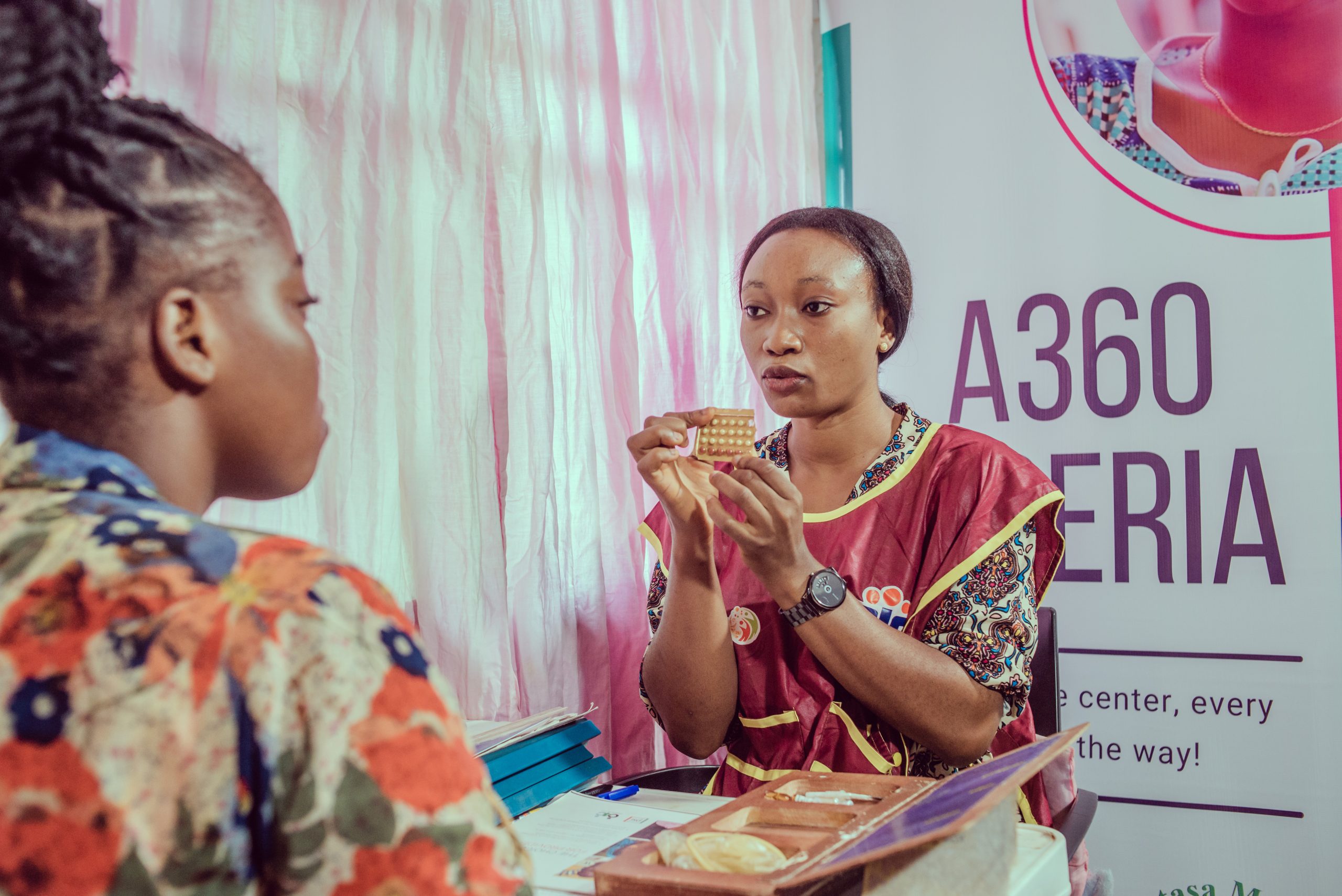Family Planning and Reproductive Health
One of the founding principles of SFH was to promote and support the practice of Child Spacing through Family planning; spacing births for three to five years to allow children to develop and grow while allowing mothers to recover between pregnancies.
Over the years, we have strengthened our capacity in delivering high-impact family planning and social franchise programmes to address the unmet need for Family Planning. We achieve this through the education and empowerment of couples by the provision of information, services, and products for both modern and natural birth spacing methods.
We continue to drive innovation in Self Care for Family Planning, while informing, educating, and integrating reproductive health for adults and adolescents into national strategies and programmes.
One of the founding principles of SFH was to promote and support the practice of Child Spacing. Spacing of births of three to five years allows each child to develop and grow best, and gives mothers the chance to recover their health and strength between pregnancies, for the benefit and well-being of the whole family. SFH does this through education and empowerment of couples through the provision of information, services, and products for both modern and natural birth spacing methods. The Family Planning Division of SFH works to achieve the following goals: 1) increase knowledge of modern child spacing methods among couples of reproductive age, 2) increase positive attitudes and understanding of the importance of child spacing products, 3) to achieve a national reduction in maternal mortality, 4) to improve inter-spousal communication among couples, 5) to increase the number of women using modern methods, and 6) to improve the capacity of health care providers to offer correct child spacing information and services.
SFH just concluded implementation of the Improved Reproductive Health in Nigeria Project (IRHIN), funded by USAID, a six-year project, from 2005 – 2011. This project contributes to the Millennium Development Goal (MDG Goal #5) of reducing maternal mortality rates in Nigeria and to contribute to national awareness of population management issues and child spacing, while the overall purpose is to improve the understanding of, access to, and correct use of contraceptives to reduce unintended or mis-timed pregnancies.
The main target groups the RH/FP division works with, providing education and training, are:
• Women: 18 – 40 years, married or unmarried, intending to use a child spacing method in the next 12 months
• Men: 18 – 50 years
• Providers: Nurses, Doctors, Pharmacists, PPMVs (medicine vendors) and CHEW`S (community health workers)
Another important project is the Women’s Health Project (WHP), a 5-year programme being funded through SFH’s International partner, Population Services International (PSI). Nigeria is one of the 14 countries that benefitted from this five-year Project. The project started July 1, 2008 and will end June 2013. The remaining 13 countries are spread across Asia, Latin America and Africa. The aim of the project is to reduce the incidences of Maternal Mortality (MMR in Nigeria is 800/100,000 live births, which means of every 100,000 babies being born in Nigeria, 800 women die) and is currently being implemented in 19 states and FCT, by:
• Expanding the child spacing options, particularly longer term methods such as IUCD and Implants among women of reproductive age (18-45 years).
• Prevention and Treatment of Post-Partum Haemorrhage (excessive bleeding after child birth) using Misoprostol in the active management of third stage of labour.
There are 208 WHP partner facilities across the 20 WHP states and the project plans to scale up to other states in the course of the project. WHP has been launched successfully in 12 states with the National Launch in Abuja. Service delivery at WHP partner facilities and outreach services are the two implementation strategies of WHP. Over 265,000 IUCDs and 70,000 implants are expected to have been inserted at the end of the project, and more than 2,000,000 doses of Misoprostol would have been administered. This project is playing an important part in saving lives of women through the use of a longer term child spacing method.
The Expanded Social Marketing Project in Nigeria (ESMPIN), SFH’s newest project which began in 2011, aims to improve the health of women and children in Nigeria primarily by increasing the use of modern family planning methods and secondarily by increasing the use of child health products. To achieve this, the project will increase access to family planning (FP), reproductive health (RH) and child health products; increase use of health products and practice of healthy behaviors; generate support from all sectors for social marketing as an important part of a total market approach; and assess the viability of local manufacture of key health products. It is a 5-year $56.3 Million USAID funded project implemented in partnership with the Society for Family Health, Nigeria, Association for Family and Reproductive Health, BBC World Service Trust and Population Services International.

